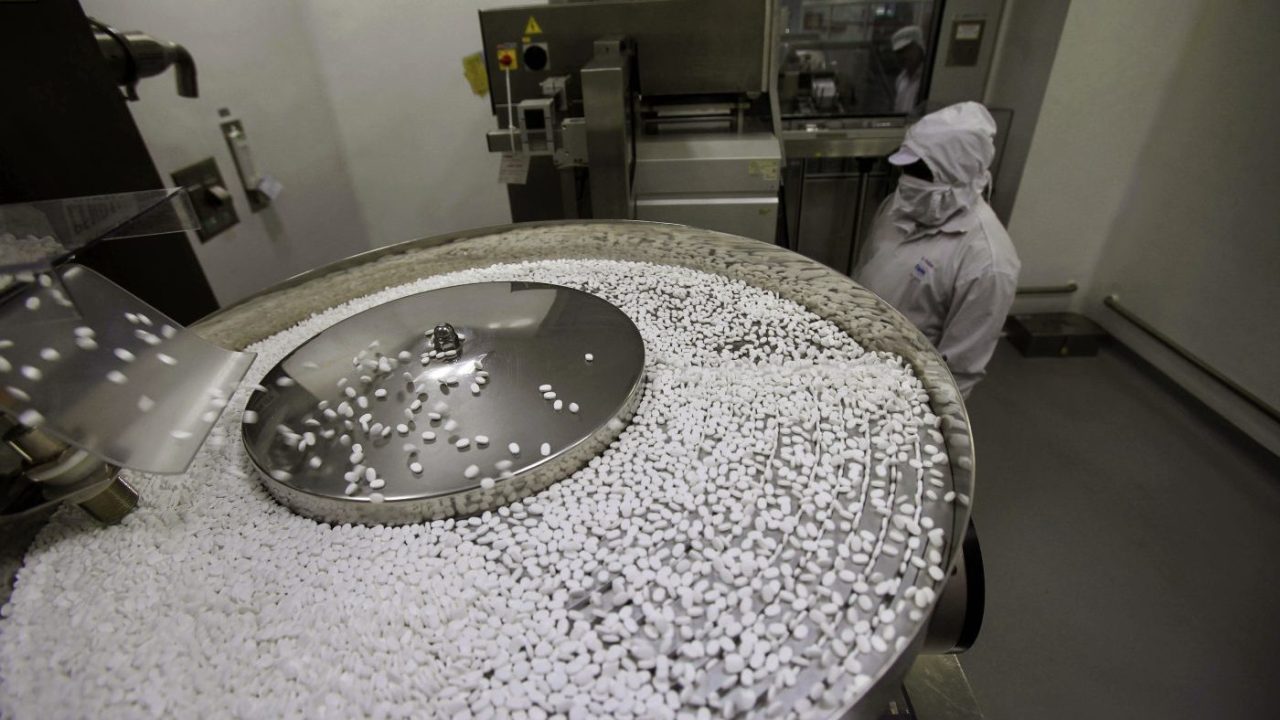Summary
Our growing reliance on imports is now driving serious drug shortages, destabilizing supply chains and increasingly making medications unsafe.
Source: The Hill on MSN.com

AI News Q&A (Free Content)
Q1: What are the primary causes of drug shortages in the United States?
A1: Drug shortages in the United States are primarily caused by disruptions in the pharmaceutical supply chain. According to recent research, these disruptions can be attributed to supply chain vulnerabilities, lack of redundancy, and geopolitical factors that may affect global supply chains and drug distribution. Key metrics suggest that improving supply chain reliability by adding backup suppliers and increasing the speed of recovery from disruptions could significantly reduce shortages.
Q2: How does the reliance on imported drugs affect the safety and availability of medications in the U.S.?
A2: The reliance on imported drugs affects both the safety and availability of medications in the U.S. Importation can lead to safety issues due to varying regulatory standards between countries, potentially resulting in unsafe medications entering the market. Additionally, geopolitical tensions and export bans can disrupt supply chains, leading to medication shortages. This situation underscores the need for robust quality control measures and diversified supply chains to ensure drug safety and availability.
Q3: What are some potential solutions to improve the pharmaceutical supply chain and reduce drug shortages?
A3: Potential solutions to improve the pharmaceutical supply chain include increasing the number of suppliers to build redundancy, enhancing the speed of recovery from disruptions, and implementing better risk management practices. Research suggests that these strategies can significantly lower the expected shortage rates. Additionally, adopting models that anticipate and mitigate geopolitical risks can also help stabilize the supply chain and ensure consistent drug availability.
Q4: What impact do high prescription drug prices have on American consumers?
A4: High prescription drug prices in the United States have a significant impact on consumers, with nearly one in four Americans reporting difficulty affording their medications. Approximately 30% of individuals have skipped or rationed doses due to cost concerns. These high prices are a result of complex factors like patent protections, lack of price negotiation for public insurance programs, and limited generic competition. This situation highlights the need for policy interventions to enhance drug affordability.
Q5: How do geopolitical factors influence global pharmaceutical supply chains?
A5: Geopolitical factors such as export bans and international trade tensions can have a profound influence on global pharmaceutical supply chains. These factors can lead to increased drug shortages and price fluctuations, as companies face challenges in distributing drugs internationally. Preparing for such geopolitical strains by diversifying supply chains and mitigating risks can enhance resilience and reduce the impact of these disruptions on drug availability.
Q6: What are the challenges in optimizing drug supply chains for adaptive clinical trials?
A6: Optimizing drug supply chains for adaptive clinical trials presents challenges such as managing the uncertainty of maximum drug supply needs and rapidly shifting supply requirements. Solutions include developing optimization tools and using statistical simulations to facilitate decision-making and supply planning. These approaches help ensure timely and adequate drug availability during clinical trials, enhancing the overall efficiency of the drug development process.
Q7: Why is diversification in drug supply chains important for reducing shortages?
A7: Diversification in drug supply chains is crucial for reducing shortages as it minimizes the risk of disruptions that can lead to shortages. By having multiple suppliers and production sites, the impact of any single point of failure is reduced. This approach not only enhances reliability but also increases the resilience of the supply chain against geopolitical and logistical challenges, ensuring more stable drug availability and access.
References:
- Pharmaceutical Supply Chain Reliability and Effects on Drug Shortages
- Effects of Geopolitical Strain on Global Pharmaceutical Supply Chain Design and Drug Shortages
- Prescription drug prices in the United States





